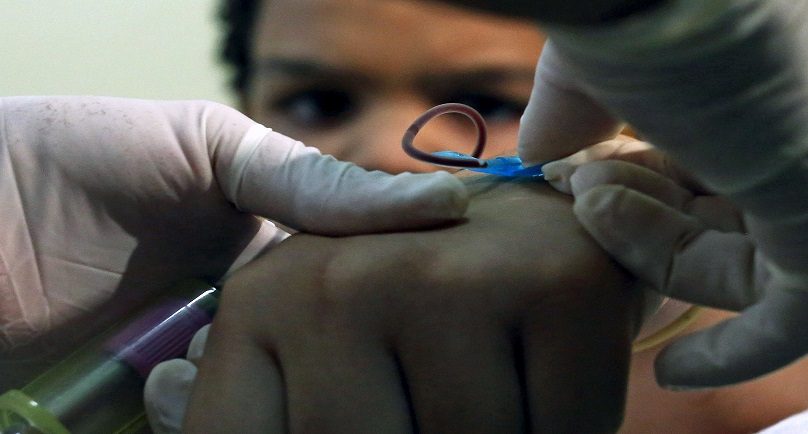Image: A health agent collects blood from a child with a new test kit that rapidly diagnoses three different mosquito-borne viruses in Sao Paulo, Brazil, January 18, 2016. REUTERS/Rodrigo Paiva
NEW YORK (Reuters) – The tourism industry in debt-burdened Puerto Rico urged precautions on Tuesday after U.S. health authorities alerted pregnant woman against travelling to the island because of the mosquito-borne Zika virus.
The U.S. Centers for Disease Control and Prevention issued a travel warning on Friday for 14 countries and territories in the Caribbean and Latin America, including Puerto Rico, where infection with Zika is a risk.
It particularly cautioned pregnant women, as Zika has been linked to serious birth defects. Puerto Rico, a U.S. territory, reported its first case of Zika in December.
“We are closely monitoring all information about the Zika virus jointly with all the tourism-related organizations,” Clarisa Jimenez, president and chief executive of the Puerto Rico Hotel and Tourism Association, said in a statement on Tuesday.
Jimenez said travel agents, meeting and convention planners were being informed of the measures being taken at the tourism destination level.
“Among these are urging the use of repellents and vigilance of spaces prone to accumulate water in order to eliminate them and avoid the breeding of the mosquito,” Jimenez said.
Zika is usually a mild illness with fever, rash and joint pain. There is no preventive vaccine or treatment, according to the CDC.
While the travel cautions may not help the island’s image for tourists, it is not seen having a significant economic impact. Puerto Rico is struggling with $70 billion debt and is trying to renegotiate payments with creditors.
“I would be very surprised if it has any noticeable impact on the Puerto Rico economy,” said Height Securities analyst Daniel Hanson. “There was pretty much no (economic) effect from the Dengue fever outbreak.”
According to the CDC website, as of Dec. 9, there were 1,696 suspected cases of Dengue reported in 2015, of which 43 were confirmed in a laboratory.
Puerto Rico has estimated that tourism contributes about 6 percent of its gross domestic product, although Hanson said it was likely higher at around 13 to 15 percent.
Standard & Poor’s analyst David Hitchcock said the leisure and hospitality sector represented only about 14 percent of total employment and 2 percent of GDP, “because it is basically a low-wage industry.”
“It’s indeterminate what the impact on tourism would be – we are not necessarily expecting an immediate big impact,” said Hitchcock.
(Reporting by Megan Davies; Editing by Peter Cooney)
Copyright 2015 Thomson Reuters. Click for Restrictions.


